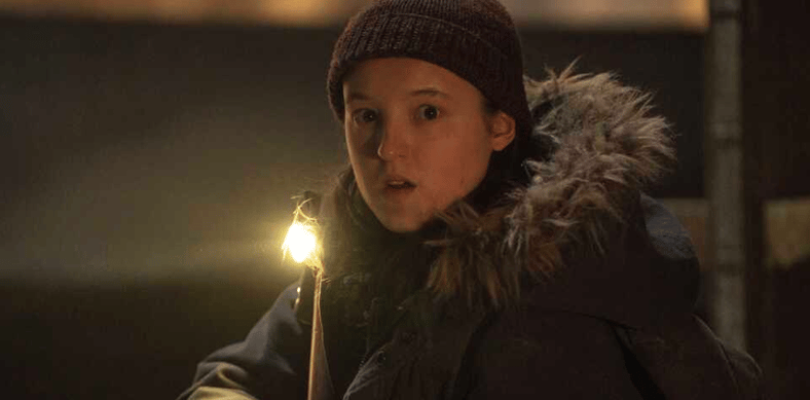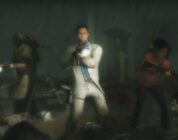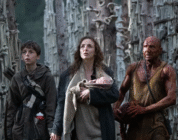In the final episode of Season 1 of HBO’s The Last of Us, Joel (Pedro Pascal) was faced with the ultimate decision. When arriving at a lab in Salt Lake City where a cure was supposed to be produced, Joel realized that the Fireflies would have to kill Ellie (Bella Ramsay) to fully conduct their research. To Joel, there was no world where he would let his surrogate daughter die, even for the greater good. Instead, he murdered several Firefly soldiers and a doctor to save her, condemning the rest of humanity to a world where a cure cannot exist.
One could argue that Joel’s decision came from a place of love. However, when this love transforms into a form of selfishness so severe that it ruins the lives of everyone else on earth, perhaps that love needs to be reassessed. Joel’s choice is one he made with himself in mind, unable to think of losing Ellie as he lost his own daughter when the zombie virus first hit. He wasn’t thinking of the greater good, nor was he thinking of Ellie herself, as he made this choice without her permission while she was sedated.
Also Read: ‘The Bondsman’ Review: Kevin Bacon Horror-Comedy Series Is A Breath of Fresh Air
Opening with a flashback to the end of Season 1, the new season of HBO’s The Last of Us (which premiered on April 13, 2025) prepares its audience for a story where guilt takes center stage. We watch again as Joel chooses not to admit to Ellie that he damned the rest of humanity in order to save her life, and Ellie takes the only man she’s ever trusted at his word. Despite her verbal cues, the look on her face suggests that she doesn’t truly believe Joel’s lies. Season 2 makes it clear that this lie has been left to fester, leaving in its wake a tension that threatens to change their relationship forever.
Immediately after the flashback, we’re transported to the mass graves of the Fireflies that Joel killed. We watch as a young woman named Abby (Kaitlyn Dever) paces above the dirt resting over the dead. She vows to avenge the fallen Fireflies, requesting the help of her friends. “When we kill him,” she says with anguish written across her face, referring to Joel, “we kill him slowly.” While viewers unfamiilar with the original Naughty Dog games may not think of this as anything to write home about, to game players, Abby’s appearance signals a different kind of dread.
Also Read: ‘Shadow of God’ Review: An Unholy and Unexpected Religious Horror
We then flash forward five years and find Joel thankfully still alive. He and Ellie now reside in their own house in Jackson, with the latter currently taking refuge in the garage following the ever-shifting tides of their relationship. As Joel becomes more imbued in the everyday goings of their safe haven, Ellie is responsible for defending the settlement’s perimeter from any clickers that pass by. This first episode almost feels like a different show for most of its runtime. That is, until Ellie and her friend Dina (Isabela Merced) run into a Stalker while they’re on patrol. The zombie slinks through the shadowy background, toying with its prey before striking. It’s here that The Last of Us reminds us that at its core, it’s still about a world plagued by the existence of zombies.
While Ellie thrives on the danger that being on patrol gives her, Joel seems to finally be winding down. We don’t know specifically what has caused the ever-expanding distance between surrogate father and daughter, and Joel seems desperate to mend their relationship. He seeks out the ears of Dina and even a therapist (played by Catherine O’Hara) in an attempt to absolve himself of his sins, instead of sitting down and talking to Ellie. Pascal plays this new version of Joel deftly, as the ruthless survivor we were introduced to in the first season has slowly become a shell of himself. It feels a bit like whiplash in the premiere episode, but there’s no doubt that we’ll learn how Joel reached this point further on in the season.
Also Read: ’40 Acres’ Review: A Family Drama With A Dash of Cannibalism [Overlook Film Festival 2025]
From Abby’s cry for vengeance to Joel and Ellie’s splintering relationship, The Last of Us already feels quite different this time around. Gone are the days of shoot-outs and explosions, trading the action in for a toned-down atmosphere. It gives room for Pascal and Ramsay to occupy more space on screen, and forces an audience so used to “content” to sit and wait for explanations that may not come until the end of the season. It’s a bold choice to make, taking away the central relationship that this show’s popularity hinged on. Yet, it’s a change that is slowly shaping this version of the story into an adaptation that isn’t afraid to take risks.
“You can’t heal something unless you’re brave enough to say it out loud,” O’Hara’s character whispers to Joel in one of their sessions. The secrets that lay between him and Ellie are big enough to not only fracture their relationship—they have the potential to change the way everyone in Jackson looks at Joel. His decision to save Ellie and sentence the world to a future without a cure may have seemed like the only option five years earlier, but it’s clear now that Joel feels like his hands are dirty with the blood of every person he could have saved. He and Ellie are clearly both forever changed by that fateful day, but with this change comes Pascal and Ramsay both harnessing a solemnity that propels season two of The Last of Us into uncharted territory.
New episodes of The Last of Us premiere every Sunday on Max.
Categorized:Reviews





